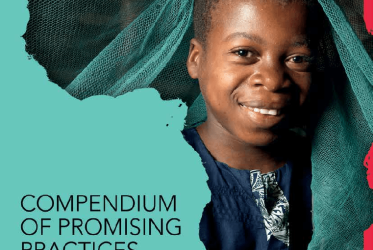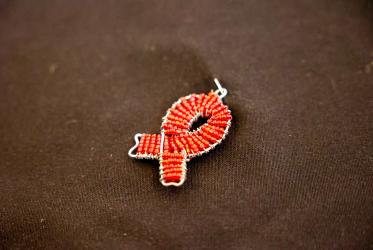World Council of Churches
Executive Committee
Reykjavik, Iceland
15-19 September 1986
The Executive Committee of the World Council of Churches, having received a report on the consultation held in Geneva in June 1986 on "AIDS and the Church as a Healing Community", wishes to call the attention of the churches to the urgency of this issue.
We call on the churches to respond appropriately to the need for pastoral care, education for prevention and social ministry as called for by the consultation.
The Executive Committee also asks the General Secretary of the WC to plan for appropriate follow-up of the recommendations of the consultation by the sub-units on Church and Society, Education, and the Christian Medical Commission
THE MEDICAL BACKGROUND
The consultation provided important medical information, including the following:
- The rate of spread of AIDS and its high fatality is frightening. AIDS is a viral infection which recently appeared, being identified only five years ago. It is sometimes considered to be the plague of the 20th century.
- ACCording to reports from the World Health Organisation, AIDS is present on all continents where it is contracted by men, women and children, regardless of socio-economic status, education, culture or religion. The number of people ill is increasing geometrically, doubling every 10-14 months. At this time, the world has about 30,000 persons with AIDS (24,000 in the USA , 2600 in Europe and 1000 reported cases in Africa ).
- This number is probably underestimated, as many countries have not been able to give complete information. The number of persons infected by the virus who have no clinical manifestations (so-called carriers) is unknown. It probably numbers in the millions. It appears that a great number of people are infected annually. The rate of infection may vary significantly from one place in the world to the next.
- In Africa the illness is contracted primarily by a heterosexual population; in Europe , North America and Oceania primarily by male homosexuals and intravenous drug users. Mortality is high reaching 75% one year after diagnosis and 100% three years after diagnosis. No efficacious treatment has been found. The hope of a vaccine is very uncertain. So far only preventive measures can help to stem the epidemic.
THE CHURCH AS A HEALING COMMUNITY
The consultation identified the following theological foundation for the Church as a healing community:
- In the mysteries of life and death we encounter God, this encounter calls forth trust, hope and awe rather paralysis and immobilisation. Those we cannot cure we can support and sustain in solidarity: "I was hungry ... thirsty ... a stranger...naked... sick ... imprisoned, and you fed ... clothed ... took care ... visited" (Matthew 25).
- The AIDS crisis challenges us profoundly to be the Church in deed and in truth: to be the Church as a healing community . AIDS is heartbreaking and challenges the churches to break their own hearts, to repent of inactivity and of rigid moralisms. Since AIDS cuts across race, class, gender, age, sexual orientation and sexual expression, it challenges our fears and exclusions." The healing community itself will need to be healed by the forgiveness of Christ.
The consultation called on the churches to undertake the following:
- The people of God can be the family that embraces and sustains those who are sick with AIDS or AIDS-related conditions, caring for the brother, sister or child without barriers, exclusion, hostility or rejection.
- Death is a mystery. We are angry and helpless when faced by its reality. We need to acknowledge our helplessness and not deny it. This has particular significance as we share the experience of ministry with persons with AIDS and as we are ministered to by them, as we grow with them in a Christian understanding of death in the light of Christ's death and resurrection.
- To assure high quality information on the disease, we invite the churches to participate actively with the health professions, local governments, where possible, and local community agencies in programmes of prevention education. We invite the churches to use the World Health Organisation and its networks of local resources.
- AIDS is preventable. Society must concentrate sufficient resources on its prevention. This will involve measures that should reasonably be adopted by all: carriers, the sick, current high risk groups and the general population, since the latter includes many undetected carriers. It also calls urgently for responsible forms of behaviour by all, and for the improvement of physical and social-economic conditions in many parts of the world.
- Preventive measures and altered behaviour patterns must address the different factors that favour the transmission of the virus; it is necessary, therefore, that the different modes of transmission prevalent regionally should be clearly described and understood. "
- Given the widely varying valuations of some of the issues related to the disease, member churches and ecumenical councils will have to be rigorously contextual in their response. We affirm, however, certain commonly held values, especially:
- the free exchange of medical and educational information about the disease within countries and across borders;
- the freedom to pursue research about the disease;
- the free flow of information about the disease to patients, their families and loved ones;
- the right to medical and pastoral care regardless of socio-economic status, race, sex, sexual orientation or sexual relationships;
- the privacy of medical records of persons with AIDS or AIDS-related Complex or positive antibodies.
- Since AIDS is a global epidemic, effective action by churches and individual Christians must extend not only to the AIDS neighbour closest at hand, but also through effective global collaboration to the stranger on the farthest side of the world."
The consultation also called on the churches "to work against the real danger that AIDS will be used as an excuse for discrimination and oppression and to work to ensure the protection of the human rights of persons affected directly or indirectly by AIDS."
The Executive Committee also wishes to call to the attention of the churches these further concerns expressed by the consultation:
- to confess that churches as institutions have been slow to speak and to act,- that many Christians have been quick to judge and condemn many of the people who have fallen prey to the disease; and that through their silence, many churches share responsibility for the fear that has swept our world more quickly than the virus itself.
- to affirm and support the entire medical and research community in its efforts to combat the disease.
- to affirm that God deals with us in love and mercy and that we are therefore freed from simplistic moralizing about those who are attacked by the virus."





